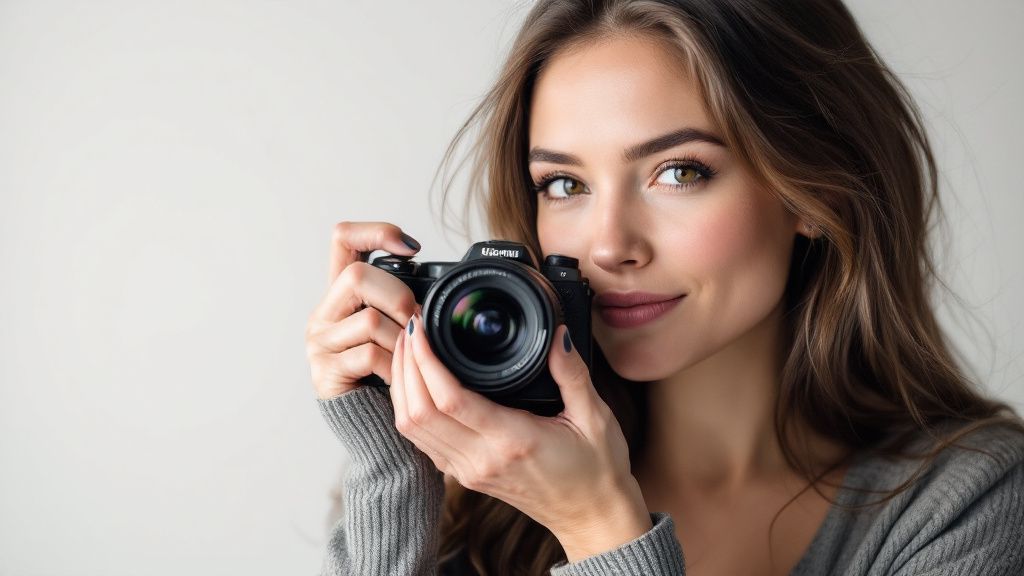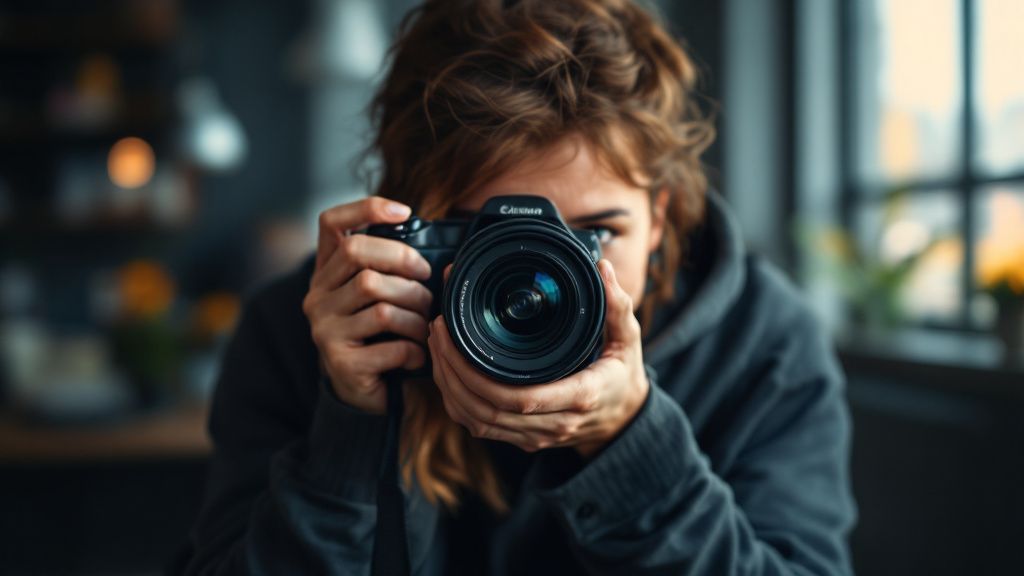Embarking on a journey toward a career in photography involves a blend of creativity, technical skills, and continuous learning. As you navigate this path, you’ll discover that professional photography is an art form that requires both passion and dedication. There are diverse avenues to explore within the field, such as becoming a freelance photographer, which offers flexibility and the opportunity to work on varied projects. Attending photography workshops can be pivotal, providing you with valuable insights and hands-on experience. These workshops not only enhance your skill set but also help in building a strong network with like-minded individuals. Pursuing a career in photography involves making informed choices and embracing the challenges and rewards that come with capturing the world through your lens.

Understanding Photography as an Art and Profession
and tell stories through your images. Different techniques can transform ordinary scenes into extraordinary works of art. In a professional capacity, photography demands precision and a keen understanding of equipment and editing tools. Mastering these skills enables you to capture moments that resonate deeply with your audience.
Engaging in photography workshops significantly enhances your ability to navigate both aspects. They provide a platform to experiment with various styles and techniques while receiving constructive feedback. This process is crucial for developing a unique photographic voice that reflects your personality and vision. Workshops can also enhance your professional photography credentials by improving your technical and creative prowess.
As a freelance photographer, balancing artistic expression with business acumen becomes essential. You must cultivate a strong portfolio and pursue diverse assignments to establish yourself in the competitive market. Being adaptable and versatile ensures you can meet client expectations across different genres from portraits to event photography. This adaptability is key to thriving in a career in photography.
In the coming years, technology is expected to further blur the lines between art and profession in photography. Advanced tools and techniques will likely make high-quality artistry achievable for more photographers, leading to even more innovative and compelling visual storytelling.

Defining Your Photography Niche
Defining your photography niche involves identifying the specific area that resonates with your creative instincts and market demands. This focus allows you to specialize and refine your skills, whether it’s in portrait, landscape, or wildlife photography. Specializing can elevate your recognition in the vast field of professional photography, setting your work apart from others. By honing in on a niche, you can connect more deeply with your audience and improve your marketability.
Exploration is essential to discovering the niche that suits you best. Engaging in diverse photography workshops exposes you to various styles and techniques, helping you realize where your passion truly lies. These workshops provide an environment to experiment and challenge yourself, pushing the boundaries of your creativity and leading you to your specific niche. Continued education and practice are vital components in shaping your career in photography.
According to recent studies, the niche you choose can significantly impact your success as a freelance photographer. Psychological research indicates that specialization aligns with increased job satisfaction because professionals who focus on their strengths tend to excel. Understanding how the brain’s reward system is activated through expertise can help you make informed choices about your photographic path. Pursuing your chosen niche ensures personal fulfillment and professional growth.
Building a Strong Photography Portfolio
Building a strong photography portfolio is essential for showcasing your unique style and capabilities. Your portfolio serves as a visual resume, highlighting your best work and demonstrating your ability to potential clients or employers. It’s important to carefully curate your selection of images, choosing photos that reflect your niche and skills. A well-organized portfolio helps you stand out in the competitive arena of professional photography.
Quality over quantity is a crucial consideration when assembling your portfolio. While many believe that including a large number of images can impress viewers, there’s a strong case for focusing on a smaller collection of exceptional work. This approach ensures that every image represents your highest standards, capturing the essence of your creative vision. Prioritizing quality not only conveys professionalism but also maintains the attention of viewers, leaving a lasting impact.
Attending photography workshops can be highly beneficial as you build your portfolio. These workshops provide opportunities to receive feedback from peers and mentors, helping you refine your selections. Learning new techniques and gaining different perspectives can enhance your portfolio’s diversity and depth. As a freelance photographer, maintaining a dynamic and evolving portfolio is key to demonstrating your growth and versatility throughout your career in photography.
Essential Equipment for Photographers
For photographers, investing in essential equipment is vital to creating professional-quality images. The foundation of your gear starts with a reliable camera body suited to your style and genre. Whether you’re drawn to DSLRs or mirrorless models, selecting the right camera is crucial to enhancing your photography skills. The right choice can significantly influence your success in building a career in photography.
Lenses are equally important, offering versatility and the ability to capture various perspectives. From wide-angle to telephoto, having a selection of high-quality lenses enables you to adapt to different shooting conditions and styles. These lenses are integral to achieving the desired creative effects and ensuring crisp, compelling imagery that stands out against the competition.
Supporting equipment such as tripods and lighting kits are just as essential. These tools provide stability and control over the environment, crucial for both studio and on-location shoots. Their role in achieving precise compositions and lighting can’t be understated, showcasing your thoughtful approach to professional photography.
In the next few years, wearable camera technology is likely to transform how photographers capture dynamic environments. This advancement could redefine mobility and creative possibilities, opening new vistas for freelance photographers. Keeping abreast of such innovations ensures that your equipment remains relevant and your work continues to evolve.
Effective Marketing Strategies for Photographers
Effective marketing strategies are crucial for photographers to establish a strong presence and attract clients in a competitive field. Building an online portfolio is a fundamental step, allowing you to showcase your work to a wider audience. Utilizing social media platforms can also enhance your visibility, as these channels enable you to engage directly with potential clients and exhibit your latest projects. Maintaining an active online presence helps solidify your reputation and connect with your target market.
One of the challenges in professional photography is differentiating yourself in a saturated market. This issue can be addressed through developing a unique brand identity that resonates with your audience. By consistently conveying your personal style and values across all marketing materials, you create a distinct image that potential clients can relate to. Leveraging targeted marketing efforts that highlight your specialized niche can further enhance your appeal and foster deeper connections with your audience.
In addition to digital strategies, participating in photography workshops and local events can provide excellent networking opportunities. These interactions not only offer insights into industry trends but also facilitate collaborations and referrals. Being proactive in the community boosts your recognition and opens up potential avenues for new projects. Consistent engagement, both online and offline, is key to sustaining a successful career in photography.
The Role of Formal Education in Photography
Formal education plays a significant role in photography by providing foundational knowledge and honing technical skills. Enrolling in a photography degree or diploma program can offer extensive training in camera operation, lighting techniques, and post-processing. These courses often combine theoretical learning with practical assignments, equipping you with a comprehensive understanding that is essential for a successful career in professional photography.
Beyond technical prowess, formal education introduces you to the history and diverse genres of photography, broadening your artistic perspective. You’ll gain insights into the evolution of different styles and the work of renowned photographers, which can inspire and influence your own creative process. This broader understanding helps you develop a distinct voice and style in your journey as a freelance photographer.
Moreover, formal education provides networking opportunities with peers and industry professionals. Connecting with classmates, mentors, and guest lecturers can lead to future collaborations and project opportunities. These relationships can be invaluable as you transition into professional realms, offering guidance and potential pathways in your career in photography.



